Disclosure: This article contains affiliate links. We may earn a commission from purchases at no extra cost to you, which helps our travel content.
The first light of dawn filters through my window at Amankora Bumthang, painting the wooden beams in hues of amber and gold. Outside, prayer flags flutter in the gentle breeze, their colors vibrant against the backdrop of pine-covered mountains. Two weeks ago, I arrived in Jakar, the heart of Bhutan's spiritual Bumthang Valley, seeking something I couldn't quite articulate—perhaps the same ineffable quality that draws so many to this Himalayan kingdom. As someone who has spent years navigating the chaotic streets of Seoul behind a bus wheel, the deliberate slowness of life here initially felt almost disorienting. Yet in this land where GNH (Gross National Happiness) trumps GDP, I've discovered a rhythm that resonates with the Japanese concept of yūgen—a profound awareness of the universe too deep for words.
The Sacred Arrival: Navigating Jakar's Spiritual Landscape
Landing at the tiny Bathpalathang Airport feels like stepping into another era. Unlike the polished efficiency of Seoul's Incheon or the controlled chaos of Bangkok's Suvarnabhumi, this humble airstrip nestled among terraced fields offers a gentle introduction to Bhutan's pace. My guide Dorji—who would become both teacher and friend over the coming days—greeted me with a traditional white silk scarf, a khadar, symbolizing purity and compassionate intentions.
The 15-minute drive to Amankora Bumthang winds through landscapes that seem painted rather than real. Jakar sits at approximately 2,600 meters above sea level, and the thin mountain air carries a sweetness from the surrounding blue pine forests. My grandmother, with her extensive knowledge of energy work, would say this place has exceptionally strong ki—life force—flowing through it.
"The valley is considered our most sacred," Dorji explains as we pass a small group of elderly villagers circling a chorten (stupa) in silent meditation. "People say Bumthang Valley is where Buddhism first took root in Bhutan."
After settling into my suite at Amankora—a masterclass in understated luxury with its terrazzo-clad bathtub, wood-burning stove, and panoramic views—I unpack my travel journal and begin what will become a daily ritual: documenting the subtle shifts in my perception as Jakar works its magic on my city-worn spirit.
That evening, I join a private blessing ceremony at Kurjey Lhakhang, one of Bumthang's most significant temple complexes. The head lama places a small amulet around my neck—protection for my journey, both physical and spiritual. As butter lamps flicker against ancient walls adorned with intricate paintings of deities and demons, I feel the weight of centuries pressing against my skin. There is wisdom here, preserved like amber, waiting for those patient enough to receive it.
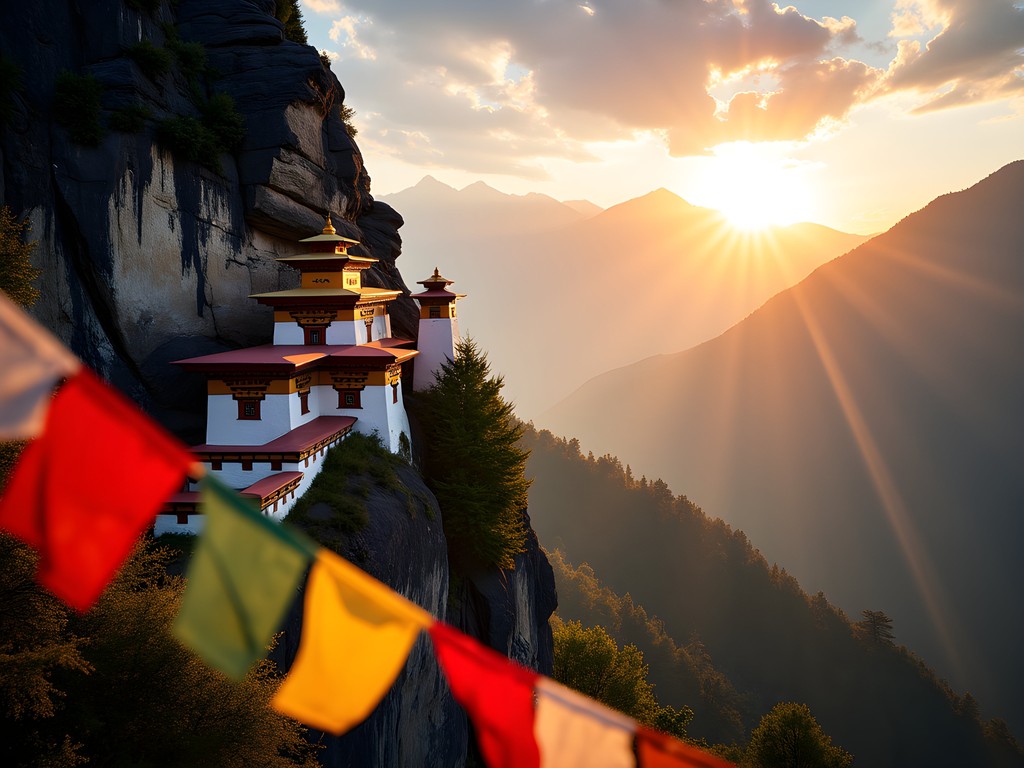
💡 Pro Tips
- Arrange a blessing ceremony at Kurjey Lhakhang in advance through your hotel or guide for a deeply personal experience
- Pack respectful attire for monastery visits—shoulders and knees must be covered
- Bring small, thoughtful offerings for monks and temples (incense, white scarves, or donations are appropriate)
The Luxury of Simplicity: Accommodations in the Valley
Bhutan's approach to tourism—high value, low impact—means that luxury here takes on a different dimension than elsewhere in Asia. My temporary home, Amankora Bumthang, epitomizes this philosophy with its minimalist design that draws the eye constantly outward to the surrounding natural beauty.
The lodge, set within the grounds of a former royal palace, houses just 16 suites—ensuring personalized attention that borders on prescient. When I mention to the manager my interest in traditional medicine during check-in, I return from an afternoon hike to find a selection of Bhutanese herbal teas and a handwritten note explaining their properties waiting in my room.
Each morning begins with yoga on a private deck overlooking the valley, led by an instructor who studied both in India and Japan. The sessions incorporate elements of Bhutanese Buddhist meditation practices, creating a fusion experience that feels perfectly aligned with my own mixed heritage and spiritual interests.
"In Bhutan, luxury is space, silence, and time," explains Tshering, the lodge manager, as we sip butter tea beside a crackling fire one evening. "These are becoming the rarest commodities in the modern world."
For those seeking an even more immersive experience, I spent two nights at the family-owned Wangdicholing Heritage Lodge, a beautifully restored traditional home where sustainability meets comfort. My room featured handwoven textiles, locally crafted furniture, and floor-to-ceiling windows framing views of Jakar Dzong fortress. Each morning, I would wrap myself in the lodge's cashmere travel wrap, a travel essential that proved perfect for Bhutan's cool mornings, and watch the sunrise paint the valley in watercolor hues.
The true luxury of Jakar, however, lies in its profound silence. No traffic noise, no commercial jingles, no constant notifications—just the occasional monastery bell, the whisper of prayer flags, and the sound of your own thoughts finally having space to breathe.
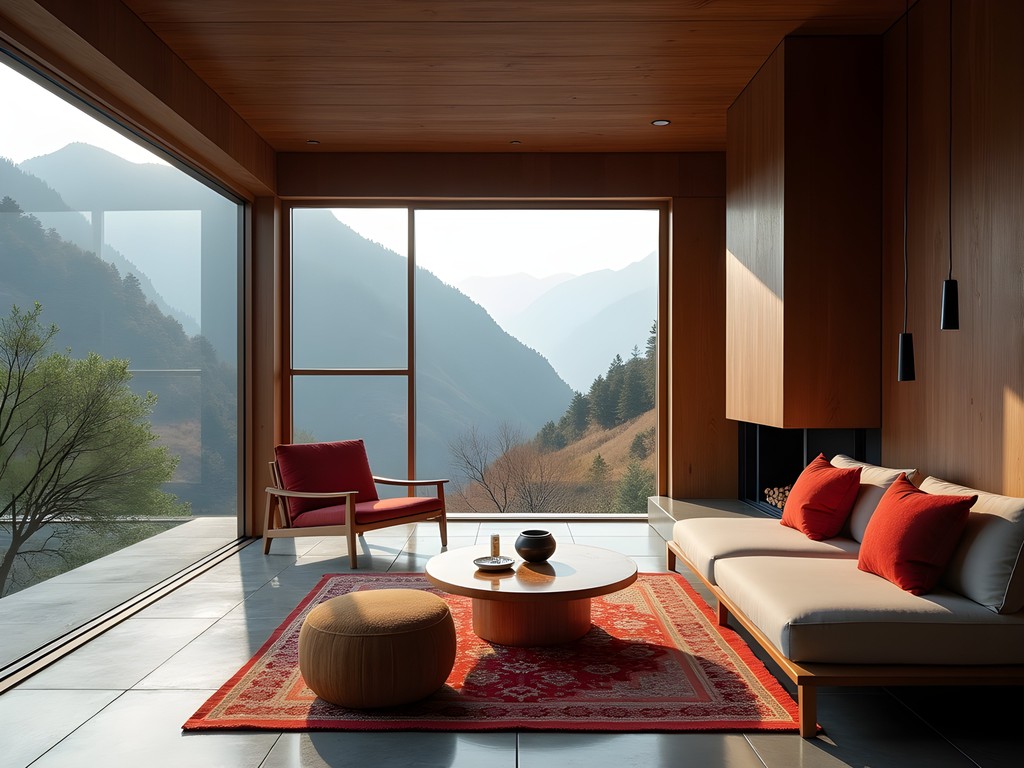
💡 Pro Tips
- Book accommodations at least 6 months in advance as luxury options in Jakar are limited
- Request a room with a view of Jakar Dzong for spectacular morning vistas
- Pack layers—even luxury accommodations can be cool at night due to the elevation
Market Medicine: Healing Traditions in Bumthang Valley
My years navigating Seoul's bustling streets as a bus driver have given me an uncanny ability to sniff out authentic local markets wherever I travel. In Jakar, the Thursday farmers' market became my weekly pilgrimage—a sensory expedition that connected me to the valley's healing traditions in ways no luxury wellness treatment could match.
"These are not just ingredients; they are medicine," explains Aum Dema, an elderly woman whose weathered hands sort through a rainbow of dried herbs at her market stall. Through my guide's translation, I learn that the bright orange cordyceps (a fungus highly prized in traditional medicine) she sells are harvested at elevations above 4,000 meters during specific moon phases to maximize their potency.
Unlike the polished displays of wellness products in high-end spas, Jakar's market offers healing traditions in their raw, unfiltered form. Bundles of artemisia hang beside sacks of Himalayan rock salt. Locally harvested honey—believed to treat everything from digestive issues to spiritual imbalances—is sold in recycled bottles with handwritten labels.
My grandmother would have spent days here, I think, as I carefully select items for my own collection. I purchase a small pouch of pemba (medicinal incense), some dried mushrooms known for their immune-boosting properties, and a hand-carved wooden cup for drinking hot spring water—a practice recommended by a local healer for balancing energy.
Beyond the market, Jakar offers several natural hot springs where healing waters emerge from deep within the earth. At Gasa Hot Springs, a two-hour drive from town, I spend an afternoon soaking in mineral-rich pools alongside local families and the occasional red-robed monk. The waters here are said to contain over 20 different minerals beneficial for various ailments.
To document these experiences, I rely on my weatherproof notebook, which proves invaluable during unexpected mountain showers and misty mornings by the hot springs. Its pages now contain pressed herbs, sketches of market stalls, and notes on traditional remedies that I hope to incorporate into my daily wellness practices back in Seoul.
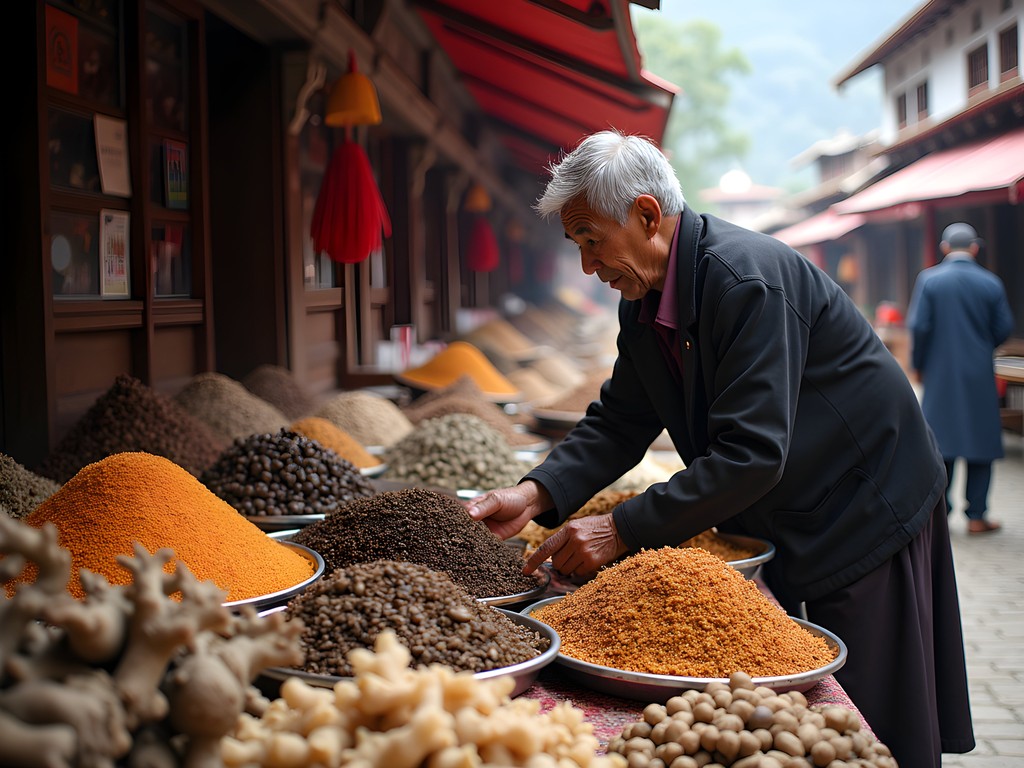
💡 Pro Tips
- Visit the market early (before 8am) to watch locals trade medicinal herbs and discuss their properties
- Bring small denominations of Bhutanese ngultrum for market purchases
- Ask permission before photographing market vendors or their medicinal items
Forest Bathing and Conservation: The Sacred Groves of Bumthang
My environmental conservation background drew me inevitably to Bhutan's pioneering approach to protecting natural resources. The country's constitution mandates that 60% of its land remain forested in perpetuity—a commitment that becomes tangibly real during my guided trek through the sacred groves surrounding Jakar.
"These trees are our oldest teachers," says Karma, my forest guide and a former monk who now works with the Royal Society for Protection of Nature. We're standing in a grove of ancient blue pines, some estimated to be over 500 years old. The forest floor is carpeted with moss so thick it feels like walking on memory foam, and the air carries a resinous scent that seems to clear not just my sinuses but something deeper within me.
The concept of forest bathing (shinrin-yoku in Japanese) originated in my mother's homeland, but here in Bhutan's sacred groves, the practice takes on additional spiritual dimensions. Karma guides me through a meditation beside a tree that local traditions say was blessed by Guru Rinpoche, the revered figure who brought Buddhism to Bhutan in the 8th century.
"Place your hands on the trunk, close your eyes, and just breathe with the tree," he instructs. The exercise sounds simple, perhaps even naive to my urban-trained mind, but the effect is profound. Twenty minutes later, I emerge from the meditation with a clarity I haven't experienced in months of Seoul's constant stimulation.
For those interested in Bhutan's conservation efforts, I arranged a special meeting with researchers at the Ugyen Wangchuck Institute for Conservation and Environmental Research, located just outside Jakar. Here, scientists combine modern research methodologies with traditional knowledge to address climate change impacts on Himalayan ecosystems.
"What makes Bhutan unique is that conservation isn't just policy—it's deeply cultural," explains Dr. Tshewang, who studies high-altitude medicinal plants. "Our Buddhist values teach that all sentient beings deserve protection."
For my forest expeditions, I relied heavily on my hiking boots, which provided excellent traction on the sometimes slippery forest paths while being comfortable enough for all-day wear. When tracking wildlife at dawn, my binoculars proved invaluable for spotting the elusive red pandas that inhabit these forests.
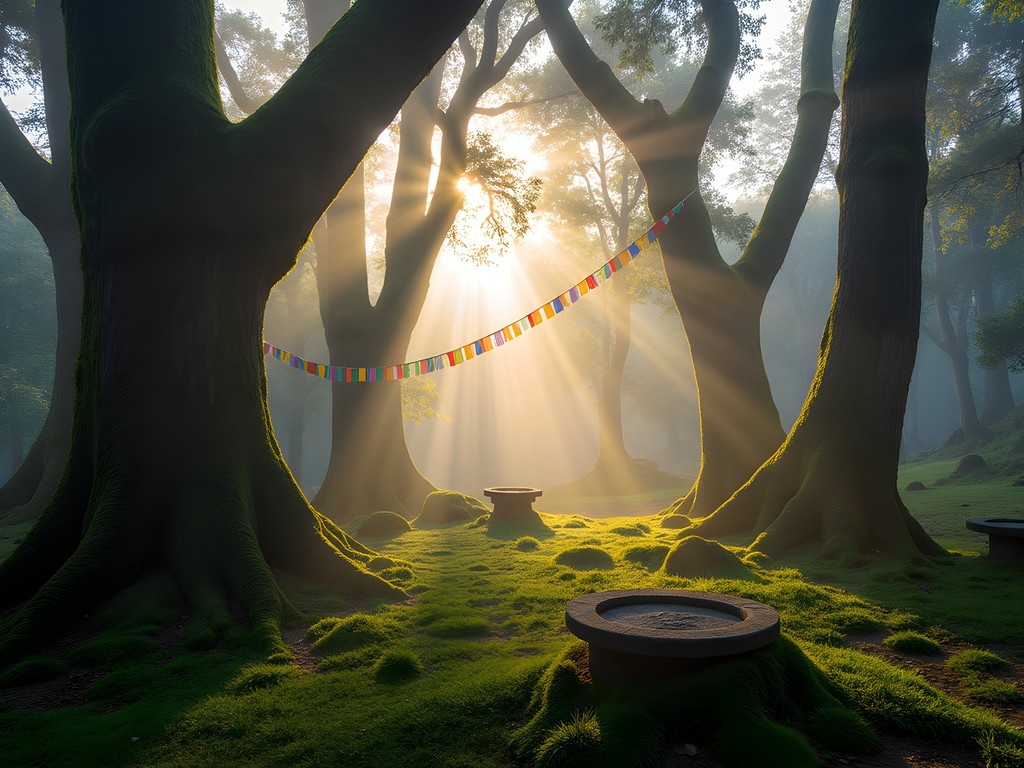
💡 Pro Tips
- Arrange specialized conservation tours through your hotel at least 3 days in advance
- Practice proper forest bathing by silencing your phone completely
- Donate directly to local conservation efforts rather than purchasing 'wildlife souvenirs'
Solo Rituals: Creating Personal Ceremonies in Sacred Spaces
There's a particular vulnerability to solo travel that strips away pretense and forces confrontation with oneself. In Jakar, I embraced this through daily rituals that became anchors in my journey—practices that merged luxury with mindfulness in ways uniquely suited to this sacred valley.
Each morning began with a ritual of my own creation: a pot of locally grown red rice tea served in a handcrafted ceramic cup, enjoyed on my private terrace as I watched the first light illuminate Jakar Dzong. This simple practice—part meditation, part gratitude exercise—set the tone for days filled with both adventure and introspection.
One particularly meaningful ritual emerged from my visit to Mebar Tsho (Burning Lake), one of Bhutan's most sacred sites. Here, the revered terton (treasure revealer) Pema Lingpa is said to have recovered sacred texts hidden by Guru Rinpoche. The site consists of a deep pool of turquoise water surrounded by prayer flags and small offering shrines.
Inspired by the devotees I observed, I began my own daily practice of writing a single intention or gratitude on rice paper each morning. In the evening, I would walk to a small stream near my accommodation and release the paper into the flowing water—a symbolic letting-go that became increasingly powerful as my stay progressed.
"Creating personal rituals in sacred spaces isn't appropriation if done with genuine respect," my guide Dorji assured me when I shared my practice with him. "It's conversation with the divine."
For solo female travelers, Bhutan offers a rare combination of safety and spiritual depth. I felt completely secure walking alone even in remote areas—a freedom that allowed for spontaneous encounters with local farmers, artisans, and monks that might not have occurred in a group setting.
One evening, I was invited to join a family's preparation of marchang, a traditional offering ceremony involving blessed rice wine. The grandmother of the household, noticing my interest in traditional practices, showed me how to arrange the symbolic elements and taught me the accompanying prayers. Though we shared no common language, our communication through gesture and shared intention created a bond that transcended words.
These personal rituals—some borrowed, some created—became the true luxury of my solo journey through Jakar. They provided structure without rigidity and meaning without prescription, allowing me to process the profound experiences this valley offered at my own pace.
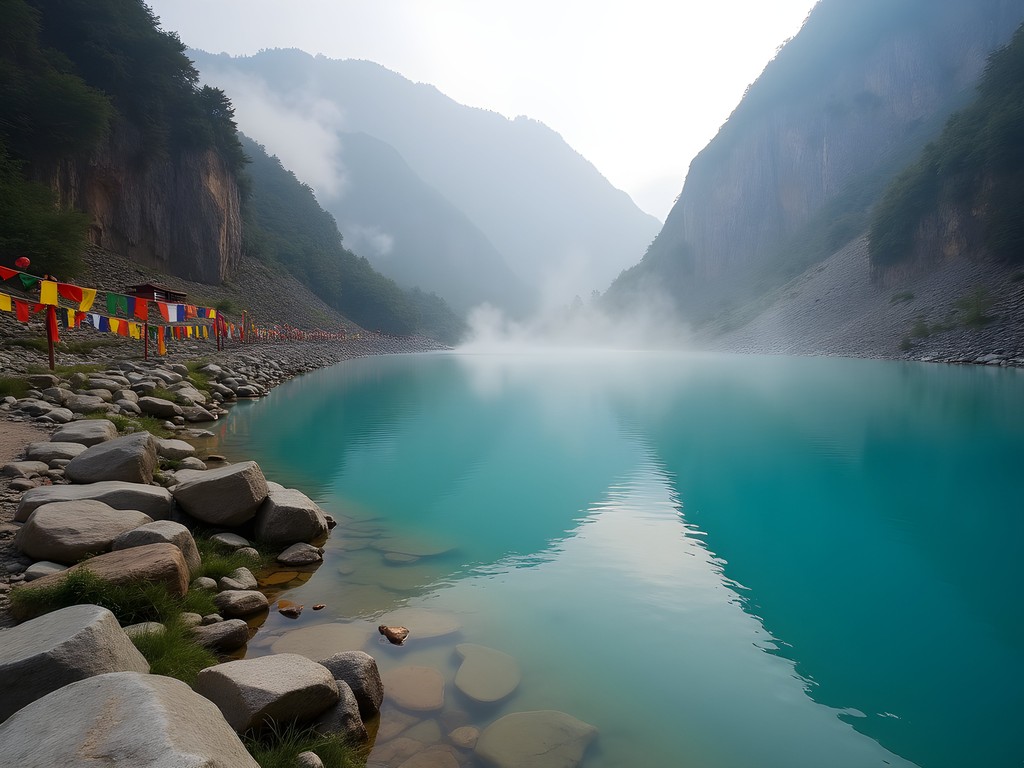
💡 Pro Tips
- Create a simple morning ritual that connects you to your surroundings
- Carry a small offering (like incense or a candle) for impromptu sacred moments
- Journal daily to process the intense spiritual experiences Jakar often evokes
Final Thoughts
As my two weeks in Jakar draw to a close, I find myself sitting cross-legged on a flat stone overlooking the valley, watching twilight transform the landscape into a watercolor of purples and blues. The monastery bells ring for evening prayers, and I press my palms together in gratitude. What began as a luxury solo journey has evolved into something far more valuable—a recalibration of my inner compass.
Jakar has taught me that true luxury lies not in thread counts or exclusive access, but in moments of profound connection—with nature, with ancient wisdom, and with oneself. The practices I've gathered here will travel home with me, small flames of mindfulness to illuminate my daily life in Seoul.
For those called to this sacred valley, come with an open heart and unhurried schedule. Bhutan doesn't reveal its treasures to those rushing from one Instagram moment to the next. Instead, it rewards the patient traveler—the one willing to sit in silence, to listen to ancient forests, and to find luxury in the spaces between breaths.
✨ Key Takeaways
- Solo travel in Bhutan offers unique opportunities for spiritual growth and personal ritual creation
- Luxury in Jakar is defined by meaningful experiences rather than opulence
- Connecting with local healing traditions provides deeper cultural understanding than standard tourist experiences
📋 Practical Information
Best Time to Visit
September to November (Fall)
Budget Estimate
$300-500 per day (including mandatory daily tariff)
Recommended Duration
Minimum 7 days, ideally 14 days
Difficulty Level
Moderate To Challenging (High Altitude, Remote Location)

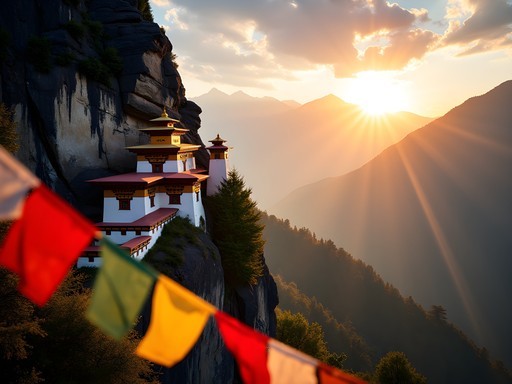






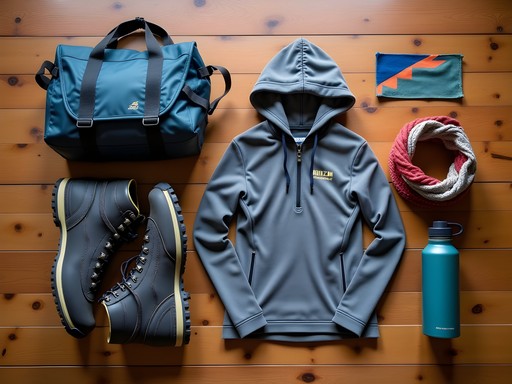
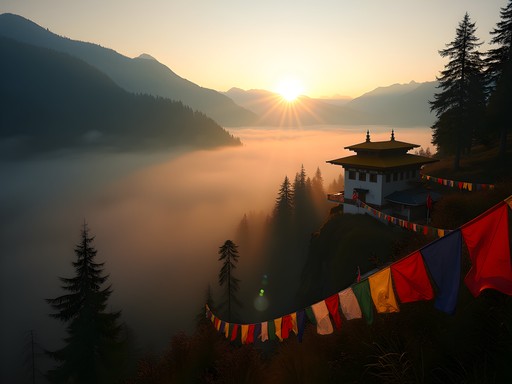
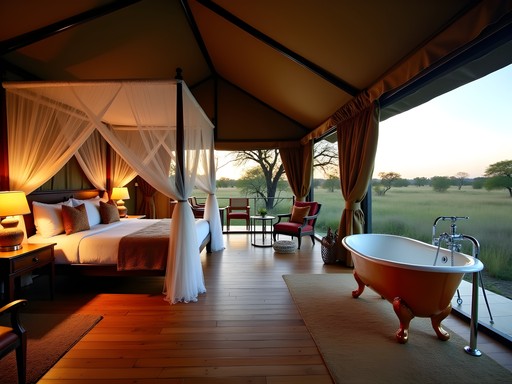
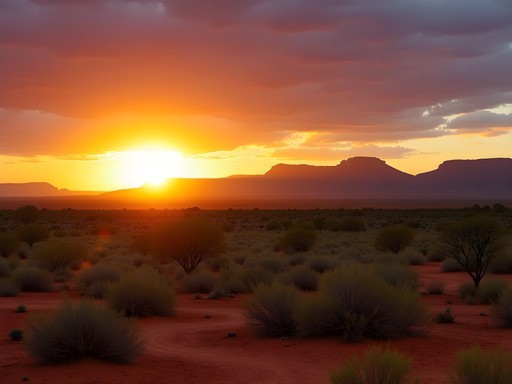
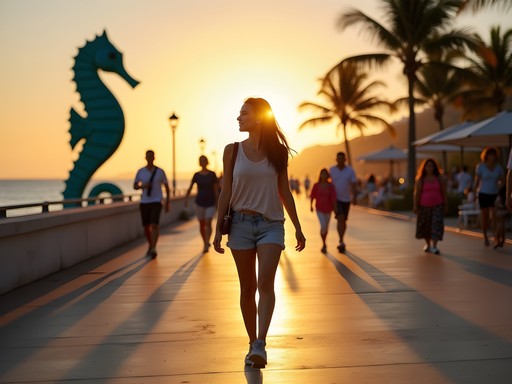

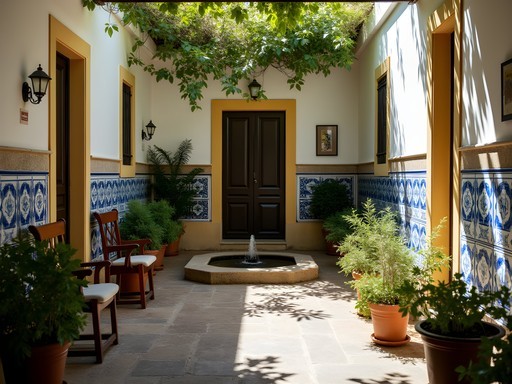
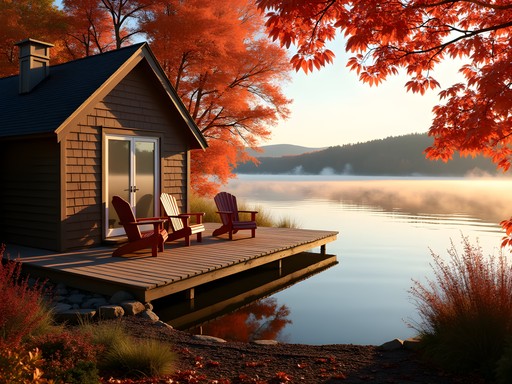
Comments
Riley Griffin
Kinsley, this really resonates with me. I took my family to a meditation retreat in Thailand last year and it completely changed how we travel together. There's something about slowing down and being present that you just can't get from rushing through tourist sites. My teenagers were skeptical at first but by day three they were actually asking to do the morning meditation sessions. The forest bathing section you mentioned sounds incredible - we did something similar in the mountains near Chiang Mai. Did you find it challenging to maintain that mindfulness when traveling solo, or did being alone actually enhance the experience?
travelchamp
That's awesome that your teens got into it! Mine would be glued to their phones lol
travelchamp
How did you handle the visa requirements for Bhutan? I've heard it's pretty complicated for solo travelers. Also curious about the daily tourism fee - is it still around $200/day?
islandseeker
Yeah I'm wondering about this too! Planning for next year.
islandseeker
Bhutan has been on my list forever! Your photos are stunning.
Jean Wells
Having traveled solo through Bhutan three times now, I appreciate your nuanced take on Jakar. So many travelers focus only on Paro and Thimphu, missing the profound spiritual depth of Bumthang Valley. Your description of the market medicine traditions resonated deeply - I still use the herbal remedies I learned about from an elderly woman in Jakar. For those planning a visit, I recommend bringing a travel journal to document your spiritual insights. The Bhutanese concept of Gross National Happiness becomes much clearer when you're immersed in daily life there. Did you find the altitude challenging at all? At 2,600m, some visitors need a day or two to acclimate before deeper exploration.
Kinsley Andrews
Jean, I'm honored to have a seasoned Bhutan traveler like yourself comment! I did feel the altitude slightly on the first day - just a mild headache. Taking it slow with butter tea helped immensely. And yes, journaling was essential - those moments of insight come so frequently there, it's important to capture them before they fade.
vacationgal
Three times to Bhutan? Wow Jean, I'm impressed! Is it different each time you go?
Jean Wells
Each visit reveals new layers, @vacationgal. Bhutan changes you more than it changes itself. That's the beauty of it.
Timothy Jenkins
Beautifully written piece, Kinsley. I visited Bumthang Valley last year and was similarly moved by the spiritual atmosphere. Did you get a chance to witness any archery competitions? I stumbled upon one near Jakar Dzong and was amazed at the skill and the festive community atmosphere surrounding what is essentially their national sport. The local ara (rice wine) flowed freely and the competitors' traditional garb added such color to the event. Your section on forest bathing reminded me of my own meditative walks through the blue pine forests - truly restorative in a way that's hard to find elsewhere.
Kinsley Andrews
Thank you, Timothy! I did catch an archery competition on my second-to-last day - completely by accident! The precision was incredible, and I loved how the opponents would do those little celebration dances when they hit the target. Such a wonderful cultural experience.
backpackchamp
OMG this is EXACTLY the kind of mindful travel experience I've been dreaming about!! Those forest bathing photos are giving me life right now! Adding Jakar to my bucket list immediately!!! 🙏✨🌿
vacationgal
That Amankora resort looks incredible! Was it super expensive? And did you feel safe traveling solo there as a woman?
Kinsley Andrews
Amankora is definitely a splurge but worth it for at least a few nights. As for safety, Bhutan is one of the safest places I've ever traveled as a solo female. The people are incredibly respectful and helpful, and crime is virtually non-existent.
starhero
How difficult was it to get the visa for Bhutan? I've heard it can be complicated for solo travelers.
Kinsley Andrews
It's definitely a process! You need to book through a licensed Bhutanese tour operator who arranges everything. Solo travel is allowed, but you still need the operator and must pay the daily tourist fee (around $200-250/day). Worth every penny though!
starhero
Thanks for the info! That daily fee is steep but from your photos, it looks like a once-in-a-lifetime experience.
backpacklegend
Your photos of the prayer flags against the mountains are absolutely stunning! Makes me want to book a flight right now.
journeylife
Beautiful photos! The prayer flags look so vibrant.
Venture X
Premium card with 2X miles, $300 travel credit, Priority Pass